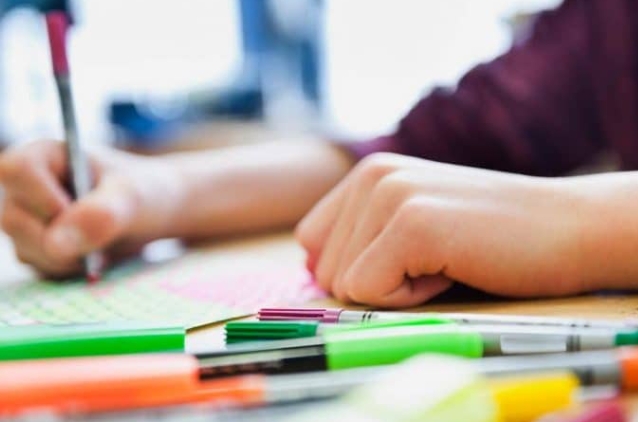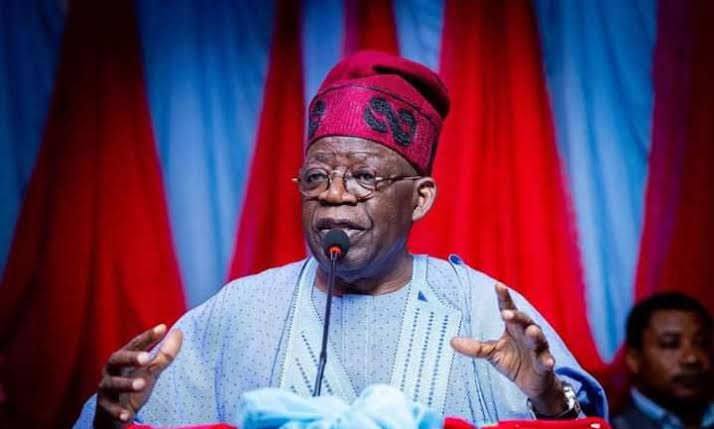News
FG ends JSS, SSS, begins 12-year basic education model

By Kayode Sanni-Arewa
The Junior Secondary School (JSS) and Senior Secondary School (SSS) education model in the country has come to an end.
To replace it, the Federal Government has
introduced a compulsory 12-year uninterrupted basic education model after which a Nigerian child can aspire to higher education.
With this development, the newly-introduced 12-4 education model will replace the 6-3-3-4 education system.
Minister of Education, Dr Tunji Alausa, announced the scrapping of 6-3-3-4 and replacement with 12-4 on Thursday in Abuja during the 2025 extraordinary National Council on Education (NCE) meeting.
NCE is the highest policy-making body in Nigeria’s education sector.
The government also sought the approval of NCE to officially adopt 16 years as the minimum entry age requirement into the country’s tertiary institutions.
The event was graced by Education Commissioners in the 36 states and the Federal Capital Territory (FCT), agencies and parastatals under the Ministry, and development partners.
Alausa revealed that by subsuming secondary education into basic education, students will benefit from uninterrupted learning up to the age of 16.
The minister said the new policy “is in line with global best practices.
The reform will also reduce dropout rates by eliminating financial and systemic barriers that currently prevent students from completing secondary education.
“Extending basic education to 12 years will ensure a standardised curriculum that is uniformly implemented across the nation.
“This will also facilitate early exposure to vocational and entrepreneurial skills, preparing students for both higher education and employment.
“Many developed nations have implemented similar systems where basic education spans 12 years, ensuring that students acquire foundational knowledge before specialising at tertiary levels.
“This reform also aligns Nigeria’s education system with international standards, fostering better educational outcomes and global competitiveness.
“It will also lead to economic and social impact. Educated youths contribute significantly to national development.
“When students receive an extended period of compulsory education, they are better equipped to join the workforce with relevant skills.
This reform will also reduce child labour and other social vices resulting from premature school dropouts”.
Alausa highlighted the implementation strategies to successfully integrate secondary education into basic education to include: policy reforms, infrastructure expansion, teacher training and recruitment, funding and partnerships, curriculum enhancement.
News
Tinubu orders probe of unauthorised NIN-SIM linkage

President Bola Tinubu has set up an inter-ministerial committee to investigate allegations of telecom providers linking National Identification Numbers to subscribers’ lines without their consent.
Impeccable sources in the Presidency told our correspondent that Tinubu gave the directive on Tuesday during the Federal Executive Council meeting at the State House, Abuja.
The committee has the National Security Adviser, Nuhu Ribadu, the Minister of Interior, Olubunmi Tunji-Ojo; Budget and Economic Planning, Atiku Bagudu; Communications, Innovation and Digital Economy, Dr Bosun Tijani and the Humanitarian Affairs, Dr Nentawe Yilwatda.
Tinubu, who listened to a briefing by the Minister of Interior, directed that the committee consider the matter and provide the Ministry of Humanitarian Affairs and Poverty Reduction with accurate data to carry out its mandate.
One source privy to the deliberations at Tuesday’s FEC meeting revealed, “It is an inter-ministerial committee; the President asked the Minister of Humanitarian Affairs, the Minister of Interior, the Minister of Budget and Economic Planning, the Minister of [Communications, Innovation and] Digital Economy and that of Education, too, to figure out what is going on and deal with the issue.
“The National Security Adviser is also on that committee. The interior minister is there because, you know, NIMC is under the interior.”
Another source, who asked to remain anonymous, said, “It is true; the President set up a small committee to take care of the challenge of the NIN-SIM linkage. The one involving Telcos. He wants that issue resolved as soon as possible.”
However, it was not clear what timeline the President gave to the committee to investigate the matter and revert to him.
Reports reveal that some telecommunications providers linked customers’ National Identification Numbers to their mobile SIM cards without obtaining consent.
Subscribers discovered that their lines had been linked to unfamiliar NIN records or had their own NIN associated with multiple lines without explicit authorisation.
Consumer advocacy groups and affected individuals have called for investigations into how such linking occurred, emphasising the need for improved transparency and stronger data protection measures.
On Wednesday, the House of Representatives initiated an investigation into the matter.
This followed a motion sponsored by Rep. Patrick Umoh and Professor Julius Ihonvbere during Wednesday’s plenary.
Umoh, who moved the motion, expressed concerns about the risks posed by this unauthorised linkage, particularly the exposure of subscribers to criminal activities and the potential harm to legitimate NIN holders.
He argued that this practice violates the Nigeria Data Protection Act, 2023, and the Nigeria Data Protection Regulation, 2019, which protects the privacy and personal data of all Nigerians.
“This action is a clear violation of the Nigeria Data Protection Act and the NDPR, which guarantee the right to privacy and data protection for every Nigerian,” Umoh argued, adding that “The linking of NIN to SIM cards without consent exposes citizens to serious risks, including identity theft, financial fraud, and other forms of cybercrime.”
The lawmaker also highlighted how innocent citizens have been wrongfully implicated in crimes, facing reputational damage, harassment, and legal challenges due to unauthorised data linking.
Therefore, the House tasked its Committees on Communications and Interior with investigating the matter and submitting a report in four weeks.
It also urged the Nigerian Communications Commission to investigate telecom providers involved and take immediate action against those found wanting.
Tuesday’s FEC meeting was the second in the two days, as council members considered 101 memos in both sittings.
News
Police drop N1.3bn fraud charges against Obanikoro’s son, others

The police have dropped the N1.3bn fraud charges they filed against Gbolahan Obanikoro, son of Senator Musiliu Obanikoro, and four others.
The decision was communicated to the Federal High Court in Lagos via a Notice of Withdrawal filed under Section 108(1) of the Administration of Criminal Justice Act, 2015.
In the document, dated February 4, 2025, and signed by Chief Superintendent of Police Justin Enang, and sighted by our correspondent, the police did not specify the reason for the withdrawal of the charges marked FHC/L/902c/2024.
The document read: “Take notice that the prosecution hereby withdraws the above-mentioned charge against the defendants herein.”
The police had charged the defendants with five counts, bordering on conspiracy, obtaining by false pretenses, false representation, and fraud.
Listed alongside Obanikoro as defendants are Adejare Adegbenro, 51; Balmoral International Limited; M.O.B. Integrated Limited; and DDSS International Company Limited.
In the charge, marked FHC/L/902c/2024, the police accused the defendants of conspiracy, obtaining money under false pretenses, and fraud involving the sum of N1,356,057,330.43.
The Inspector General of Police, through the Special Fraud Unit in Ikoyi, Lagos, accused the defendants and others at large of conspiring amongst themselves between May and September 2013 to fraudulently obtain the sum of N1,356,057,330.43 from Access Bank Plc (formerly Diamond Bank).
Related News
They were accused of allegedly misrepresenting themselves to the bank’s staff and officers, claiming they were involved in the business of importing cars from Dubai for sale in Nigeria, and that the money was needed to finance the importation of a set of brand-new cars for resale.
The defendants were also accused of converting, transferring, retaining, or taking possession of the funds, knowing or having reason to know that such funds were proceeds of unlawful activity.
Additionally, the police alleged that they unlawfully converted N1 billion of the bank’s funds for personal use.
The defendants were originally scheduled to be arraigned on January 26, 2025, before Justice Ambrose Lewis-Allagoa.
The arraignment could, however, not go on as the defendants were absent from court.
Though the prosecutor, Momoh Bello, applied for a bench warrant against them, counsel for the fourth defendant ( M.O.B. Integrated Limited), Joshua Abel, opposed the prayer.
The judge later rescheduled the arraignment to February 27, 2025.
Meanwhile, our correspondent gathered on Thursday that the hearing to officially strike out the case could take place today (Friday).
News
Fresh price hike looms as NPA plans 15% tariff increase

The Nigerian Ports Authority said it has secured necessary approvals for an upward review of its tariffs by 15 per cent, stressing that this was last reviewed in 1993.
It said the move was necessitated by the urgency of bringing Nigerian ports up to speed with its peers in terms of infrastructure and equipment to ensure competitiveness at the ports.
This came as operators at the ports declared that the implementation of the 15 per cent ports tariff hike would lead to a higher cost of doing business nationwide, as the cost of commodities would rise.
The Managing Director of NPA, Dr Abubakar Dantsoho, disclosed the plan on Thursday in Lagos during a stakeholders’ engagement for the approved 15 per cent NPA tariff increment.
Recall that in 2023, the Federal Government, through Ports,” Dantsoho said.
The NPA boss highlighted that globally, port authorities depend on revenue from operations to stay alive to their responsibilities.
Dantsoho explained that the global index of port rating and competitiveness which the international trade community relies on for its choice of countries to do business with, derives its data from how well the aforementioned responsibilities are addressed.
He pointed out that coming at this period of global economic upheaval and scramble for markets, “this belated tariff review borne out of necessity constitutes a critical success factor in Nigeria’s quest to win back cargo handling business and its accompanying benefits including job opportunities it had lost to its maritime neighbours.”
Dantsoho said the high incidence of unreceipted costs due to unduly high human interface, bureaucratic bottlenecks, and functional overlaps resulting from the absence of a Port Community System and its corollary, the National Single Window, is responsible for this contrived falsehood.
“Although long overdue, a quick win benefit of the NPA’s tariff review for stakeholders is the immediate boost it gives to the authority to fast track the commencement of actual works on its concluded port reconstruction and modernisation plans,” he said.
He said that the tariff review provides the necessary guarantees to fund the acquisition and urgent deployment of the information communications technology backbone of the PCS which is the precursor to the implementation of the NSW.
The NPA boss added that the move would also increase revenue generation arising from the review buoys the authority’s capacity for critical maintenance works to open up the eastern ports for increased vessel and cargo traffic such as the reconstruction of collapsed Escravos breakwaters and challenged aspects of Rivers, Onne and Calabar ports.
Reacting to the development, the Head of the Department of Shipping and Terminals at the National Association of Government Approved Freight Forwarders, Mr Ukochukwu Nnadi, said the 15 per cent hike in ports tariff would lead to a rise in the cost of doing business nationwide.
“Definitely it will add to the cost of doing business because every kobo added to doing any particular thing, no matter what the thing is, will be passed to the customers, and the customers in this case are the stakeholders.
“As the NPA wants to add cost, even if it’s a kobo to their changes to the operators, it will be passed to customers sooner or later; it is as easy as that. So it is going to add to the cost of doing business,” he said.
Also speaking, the National Protocol Officer of the Association of Nigerian Licensed Customs Agents, Mr Riwane Amuni, said the hike in tariff would add to the cost of doing business.
He noted that the reason why operators are silent about it is because it’s been a long time since the NPA reviewed its tariffs.
“It will definitely add to the cost of doing business because it is an additional tax on the masses. But the reason people are not really talking about this is because it has been a long time since they increased tariffs. That’s why the noise is not much.
“But all things being equal, it is still an additional cost. Because all these things you are seeing, like the additional tariff or input, will tell on the customers because whatever the importers spend they will put it on the masses,” he said.
Earlier during the event with the NPA, a stakeholder, Joshua Asanga, agreed with the increase, adding that the value of NPA’s present tariff had since been suppressed by inflation
Asanga listed port management liabilities like wages, fuel, and other areas of expenditure as having adjusted upwards without a commensurate rise in NPA charges for over thirty years
However, the NPA later said the upward review would not affect item rates such as the throughput and lease fees, rents on NPA landed properties, MOWCA levy, service boat operations, and hourly towage and mooring charges.
It said port cost should not be taken for NPA charges as the port cost covers charges by other government agencies operating the port.
-

 Sports20 hours ago
Sports20 hours agoSevilla invite Nigerian footballer for trial after 100k retweets
-

 Entertainment20 hours ago
Entertainment20 hours agoDavido set to launch own electric bikes brand
-

 News20 hours ago
News20 hours agoSenate cttee gathers data on Nigerians abroad, plans to reverse japa
-

 News18 hours ago
News18 hours agoAgain, Tiwa Savage, Ex-Husband Coming Together After Six Years Of Separation
-

 News14 hours ago
News14 hours agoJUST IN LIST: Reps Committee Proposes 31 New States In Nigeria
-

 News14 hours ago
News14 hours agoSAD! Veteran Nollywood Actor, Columbus Irisoanga ‘Igbudu’ is dead
-

 Entertainment20 hours ago
Entertainment20 hours ago“Why I relocated my kids abroad-Comedian Bovi gives reasons
-

 News18 hours ago
News18 hours agoFollowing Trump Footsteps, Argentina Quits World Health Organization
















